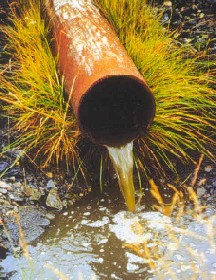

 |
Soil the Pollutant ControlAnother amazing feature of soil is the way it acts as a 'filter' against many forms of harmful substances (pollutants). Research by soil scientists has shown that soil can have a major role in the transport of pollutants. Water in soil can transport substances such as nitrate, phosphorus and pesticides to water sources such as rivers, and whilst they are important to soil and plant life, these materials are generally considered harmful to humans and wildlife when they exceed certain quantities. However, soils can also modify the impact of pollutants. For example, in wet conditions in the soil nitrate is converted into nitrogen gas, where it can be safely released into the atmosphere. Similarly, pesticides can be broken down into harmless substances by certain micro-organisms present in the soil. Phosphates are mostly filtered naturally during drainage of water (percolation), as they become tied to soil particles, and are trapped in the soil. Soil is also effective at filtering ‘urban’ pollutants like oil and metals. Oil in particular is an organic substance which soil microbes can break down into carbon dioxide and water. Metals such as lead from petrol however cannot be broken down in such a manner, but the soil can often retain them until they can be absorbed into plants, which can then be disposed of safely. |
|||
|
|
|||
|
|
|||
